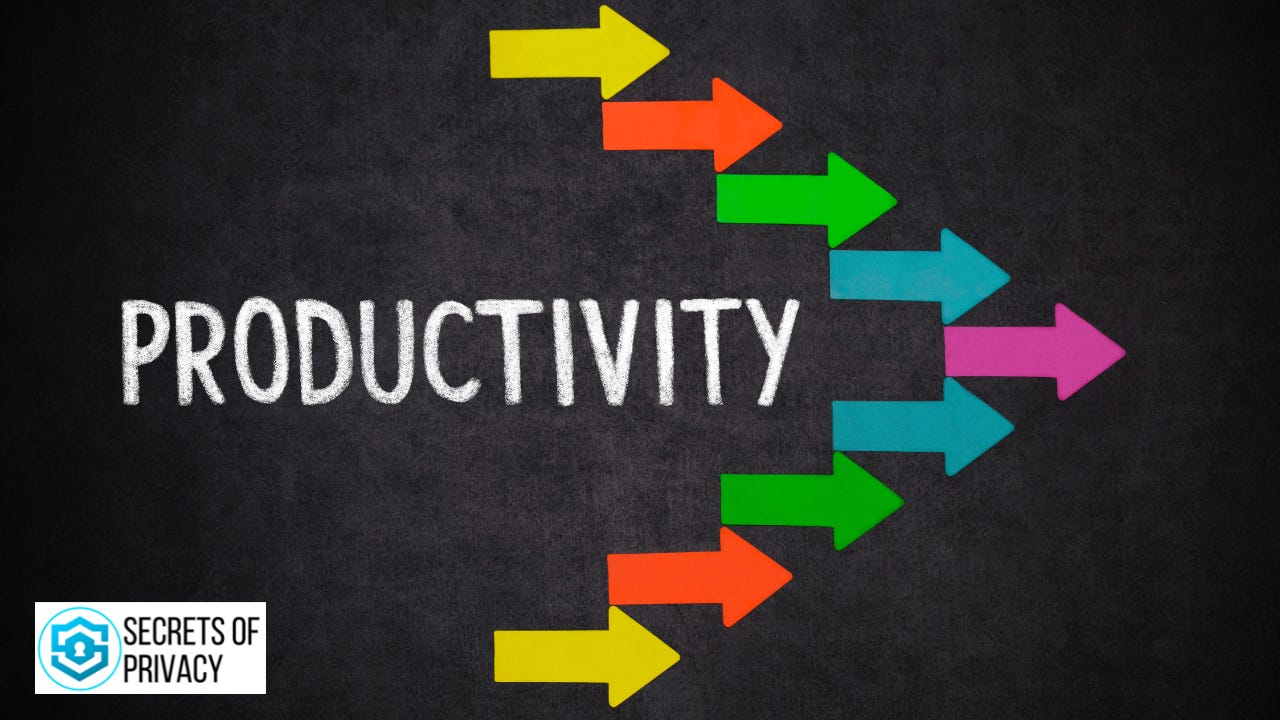Boost Productivity and Security: The Power of Password Managers
How Password Managers Streamline Access, Free up Headspace and Save Time
Managing passwords is a a daunting task. Seventy percent of Americans feel overwhelmed by the amount of passwords they have to keep track of. The problem is that poor password management is not only an online privacy and security risk, it can also be a drain on productivity.
Password managers are the solution. They are simple yet powerful tools to simplify how you manage this frustrating aspect of living online. But only about 33% of Americans use a password manager. There is a generation gap with at play, with younger generations more likely to use one than older generations.
Welcome to another issue of Secrets of Privacy where we discuss internet and digital privacy related topics and provide practical tips to immediately shield your personal privacy.
If you’re reading this but haven’t yet signed up, join the growing Secrets of Privacy community for free and get our newsletter delivered to your inbox by subscribing here 👇
We’ve covered password managers in depth before (see here). But this post will focus more on the productivity boost and specific benefits to families and teams that manage shared logins. Even if you’re not persuaded by the privacy and security benefits of password managers, the productivity benefits are worth factoring in.
We’ll touch on the basics of password managers, but feel free to skip straight ahead to the productivity discussion.
The Basics: What is a Password Manager?
A password manager is a software application designed to store and manage online credentials. These tools generate strong, unique passwords for each of your accounts, which are then stored in an encrypted database. Users only need to remember one master password to access all their stored credentials. In most cases, the password manager will input your credentials with just a click or two.
The most user friendly password managers will offer a browser plugin for desktop and a standalone app for mobile. If you enable cross-device syncing, you can enter the credentials on one device and then access on another.
Privacy and Security: The Foundation of Password Managers
Before diving into the productivity benefits of password managers, here’s a quick rundown of the traditional benefits from an internet privacy and security POV:
Enhanced Security: Password managers generate and store complex passwords that are difficult to crack, significantly reducing the risk of unauthorized access. No more generic passwords or writing them down on sticky notes.
Encryption: All stored passwords should be encrypted, ensuring that even if the database is breached, the data remains protected.
Protection Against Phishing: Password managers can autofill credentials only on legitimate websites, preventing users from falling prey to phishing scams.
Regular Updates: Many password managers prompt users to update weak or compromised passwords, maintaining a robust security posture.
Breach Notifications. Some password managers alert users to potential security breaches involving their accounts.
Understanding Password Managers and How They Work
Online scams and threats are becoming more sophisticated and damaging. Advances in AI will only accelerate that trend. Poor password practices are a liability, specifically the reuse of the same password across multiple sites and especially using simple passwords that Bad Actors can easily figure out. The need for strong and unique passwords is therefore critical.
Boosting Productivity: The Unsung Hero of Password Managers
Beyond digital privacy and security benefits, password managers offer numerous productivity benefits for both individuals, teams and businesses. Once you start using a password manager, you’ll no longer be one of the 70% of people overwhelmed because the process becomes effortless. All that’s required is a brief investment to set up the application.




